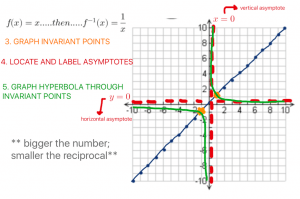Category: Grade 11
Week 16 – Precalculus 11
This week was super cool! We had SFU come in to create a video staring us and our Sr Girls Soccer team went to Provincials 🙂 During my time at provincials I missed two lessons of math… So, I decided to my blog post on what we learned one of the days I was absent!! Enjoy.
So if we started with the equation:
 The first thing we would begin trying to do is finding a common denominator, alike what we have been doing thus far.
The first thing we would begin trying to do is finding a common denominator, alike what we have been doing thus far.
Once we have found our common denominator we need to multiply it on both sides to create zero pairs:
Once I wrote out my common denominator I then cancelled out like terms, then I wrote out the new equations:
From there, I began by distributing. After that, I moved like terms to each side of the equation to make it easier to solve:
Here is the movement to either side of the equation…
Then, I combined the like terms on both sides of the equation and solved to get one term on each side…
From there I divided what was common and what could get my variable by itself.
Which then resulted in getting the final answer….
Week 15 – Precalculus 11
Week 14 – Precalculus 11
Week 13 – Precalculus 11
Week 12 – Precalculus 11
Week 11 – Precalculus 11
Enjoy!
Week 10 – Precalculus 11
Mid- Term Review week!!
Enjoy 🙂
Week 9 – Precalculus 11
This week felt like a lot of review. Wether it be review for our chapter test tomorrow or our midterm on Thursday, it was packed with previous learning. At the start of the week we focused on going and working ‘between’ different equations and changing them from one form into another. The three forms we covered are General Form, Factored Form and Standard / Vertex Form. We can interchange these formulas to give us different pieces we need for graphing. Therefore, if you were given an equation in General Form and you were asked to change it to Vertex Form you would use the method of completing the square. If the equation was . First, you would divide by -4 to get the
by itself, then you will re-write your equation as
. In order to find the numbers that go in the blank you will need to spilt the middle term and square it! (middle term being 6). That would give you 9, you then put the 9 in the 2 blank spots. Your equation will now be
. Next you will create your binomial and multiply the -9 by -4 to be able to move it to the outside of the brackets. Your new equation will now be
. The next step is to subtract the 7 from 36 leaving you with 29. Your new equation is
. With this new equation we are now able to find the vertex of the parabola, if it is positive or negative (opens up or down), and if it is congruent to the 1,3,5 pattern used when graphing.
Here is the same equation demonstrated on paper.
Week 8 – Precalculus 11
First week back from Spring Break :/ … Here is my video on Graphing Quadratics!!







